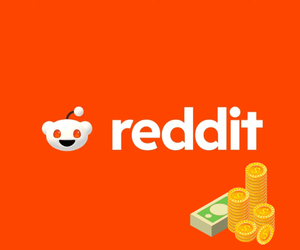A Meme Stock becomes renowned or notorious based on its product, merit, or graphs. A significant indicator of a meme stock is if it has become a joke or is brought up frequently. They are called "Memes" because these stocks are pumped up in blogs or social media channels, where people use jokes, memes, and all sorts of content to 'support the cause' (The cause = raising the stock's price). This type of financial behaviour arrived first with Cryptocurrency trading, where Crypto chats displayed memes of rockets "Going to the Moon" or "Lambo", representing the desire to profit.
HOW TO INVEST IN DISNEY STOCK
Walt Disney is a diversified multinational entertainment and media conglomerate, famous for its movies, theme parks, and television networks. It is listed on the New York Stock Exchange (NYSE), a critical platform for entertainment and media companies. Is it a good investment then? Are there ups and downs? What investment strategy should I use with the stock? This article will answer these questions and more.

Steps to Invest in Walt Disney
Research and Analysis:
The Walt Disney Company is one of the leading entertainment and media companies worldwide. Its business encompasses movies, television, theme parks, streaming (Disney+), consumer products, and licensing. Before investing in DIS, review their financial reports, Disney+ growth, theme park attendance, and trends in the entertainment sector.Open an Investment Account:
Disney is listed on the NYSE under the ticker DIS. To invest in their shares, you need an account with a brokerage that has access to US markets. Some platforms allow the purchase of fractional shares, making it easier to invest with less capital. Typically, you will be asked for a copy of an identification document and a utility bill (such as electricity or water) to verify your identity and address. Compare the fees, trading platforms, and services offered by each brokerage to choose the one that best suits your needs.Define Investment Strategy:
Disney is a growth stock with a global presence, which can be a good option for a long-term strategy. It is also attractive for short-term trading, as its stock price often reacts to movie releases, Disney+ subscriber data, and earnings reports.Execution and Monitoring:
It's important to monitor key metrics such as Disney+ growth, the profitability of theme parks, and the evolution of its franchises (Marvel, Star Wars, Pixar, ESPN). It also competes with Netflix (NFLX), Amazon Prime Video (AMZN), and Warner Bros. Discovery (WBD) in the streaming sector.Diversification of Portfolio:
To reduce risks, you can diversify with other entertainment, technology, or tourism companies, such as Netflix (NFLX), Comcast (CMCSA), or Booking Holdings (BKNG). You can also invest in ETFs that include Disney, such as the Communications Services Select Sector SPDR Fund (XLC), which groups companies from the media and entertainment sector.
SWOT Analysis of Walt Disney as an Investment
We will use a SWOT analysis to evaluate investment in Walt Disney, as this tool allows for a comprehensive examination of the internal and external factors affecting the company's performance. This approach identifies the Strengths and Weaknesses (internal factors) and the Opportunities and Threats (external factors) that affect its position in the global entertainment sector.
Strengths:
Iconic and globally recognized brand: Walt Disney is synonymous with entertainment and owns highly valuable franchises, giving it a significant competitive advantage.
Business diversification: It operates in film studios, television, theme parks, consumer products, and digital media, reducing reliance on a single revenue source.
Innovation in content: Its ability to create and adapt engaging content to market trends allows it to remain relevant.
Global presence: With operations in multiple regions, Disney has a broad consumer base and expansion opportunities.
Weaknesses:
High operating costs: Maintaining theme parks, studios, and streaming platforms involves significant fixed investments and expenses.
Exposure to content risks: Dependence on box-office hits and the acceptance of new productions can generate income volatility.
Integration of acquisitions: Incorporating new franchises and companies requires complex management and can affect efficiency and synergy.
Dependence on key markets: Although it is global, a significant portion of its income comes from the United States, which can expose it to local economic changes.
Opportunities:
Streaming expansion: The growth of online content platforms offers the potential to reach new audiences and diversify revenue.
Development of new franchises: Creating and acquiring successful intellectual properties can boost earnings in film, television, and merchandising.
Strategic partnerships: Collaborating with other media and technology companies can optimize the distribution and reach of its content.
Emerging markets: Opening theme parks and expanding services in developing regions can increase the consumer base.
Threats:
Intense competition: Other entertainment companies and streaming platforms compete for consumer attention and spending.
Regulatory and intellectual property risks: Changes in copyright laws or media regulations can affect the distribution and exploitation of content.
Global economic volatility: International crises or recessions can impact demand for leisure and entertainment.
Production disruptions: External phenomena (like pandemics) can disrupt content production and theme park operations.
What is an International Stock Broker?
An International Stock Broker is the entity (or platform) that allows you to buy and sell shares of companies listed on stock exchanges in different countries around the world. Unlike a local brokerage, the main focus of International Brokers is to provide access to global markets, such as the U.S., European, or Asian markets.
Why do we need an International Stock Broker?
Investing in international stocks can be an excellent way to diversify your portfolio, as it gives you the opportunity to participate in the growth of economies and sectors worldwide. However, operating in global markets is not as simple as in the local market: specific knowledge, compliance with international regulations, and the use of advanced trading platforms are required.
An International Stock Broker brings all these investment opportunities in one place and allows you to access different exchanges and trading conditions in exchange for a commission.
Examples and comparisons:
There are several well-known International Stock Brokers, such as Interactive Brokers, eToro, TD Ameritrade, and Saxo Bank, among others. Each offers trading platforms with unique features and commissions that vary depending on the service. Some stand out for providing market analysis and advice in multiple languages, while others may offer more competitive operating costs or social investment tools. These details allow you to choose the option that best suits your needs and investor profile.
Regulatory and security aspects
It is essential that the International Stock Broker you choose is regulated by recognized entities in the country where it operates, such as the U.S. Securities and Exchange Commission (SEC) in the United States, the Financial Conduct Authority (FCA) in the United Kingdom, or the Comissão de Valores Mobiliários (CVM) in Brazil, among others. This supervision ensures that the broker complies with strict security and transparency standards, providing you with greater confidence when investing your money.
How do Brokers "connect" to International Markets?
Through agreements with foreign stock exchanges and the use of advanced technological platforms, International Stock Brokers process the buy and sell orders placed by their clients. They order transactions according to price, order of arrival, and other parameters, charging a commission when the transaction is executed. This technological infrastructure allows for fast and secure operations, facilitating real-time tracking of your investments.
In conclusion, an International Stock Broker is your gateway to the world’s most important stock markets. Thanks to its regulation, trading platforms, and knowledge of global markets, you can diversify your portfolio and seek growth opportunities in different sectors and countries.
YOU MAY ALSO BE INTERESTED









